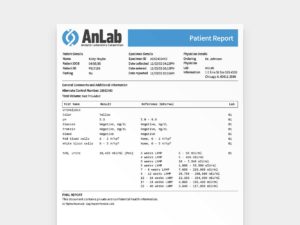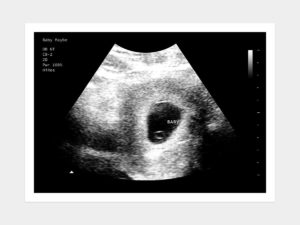
Parenthood begins with a fundamental understanding of reproductive health: fertility. For many couples, achieving conception can be both exciting and challenging. Understanding fertility, the factors that influence it, and adopting strategies to enhance your chances of conception are key steps in this process. This article is designed to provide comprehensive insights into fertility, offering tips to optimize your chances of conceiving and embarking on the path to parenthood.
Fertility refers to the ability to conceive and successfully carry a pregnancy to term. While conception might seem simple, it is a complex process that relies on various factors coming together harmoniously. It involves the release of a mature egg from the ovaries (ovulation) and its fertilization by a sperm cell and implantation in the uterine wall. Understanding the menstrual cycle and ovulation patterns is crucial for those desiring to conceive.

A regular menstrual cycle typically ranges from 21 to 35 days. Tracking your cycle helps identify when ovulation occurs. Ovulation typically occurs 12 to 16 days before your period begins. Apps and calendars can help predict fertile windows (period when fertilization is likely to occur), but it is important to note that individual cycles can vary.
Ovulation signs include increased cervical mucus, changes in basal body temperature, and mild pelvic discomfort. Understanding these signals can help you pinpoint when you are most fertile.
While timing intercourse during the fertile window is important, fertility is also influenced by other factors:

Adopting a healthy lifestyle can significantly enhance your fertility:
Fertility is not solely a female concern; male factors also play a significant role:
Encourage your partner to adopt healthy habits alongside you. Taking a joint approach to optimizing both male and female fertility can enhance your chances of conception.

If conception does not occur after a year of trying, consider consulting a fertility specialist. For women over 35, seeking assistance after six months of trying is recommended. A specialist can assess both partners' fertility, identify any underlying issues, and recommend appropriate interventions.
Understanding fertility is a crucial step for couples hoping to become parents. By tracking menstrual cycles, monitoring ovulation signs, adopting healthy lifestyle habits, and seeking medical advice when needed, you can optimize your chances of conceiving. Remember that fertility is a complex interplay of various factors, and patience is key. With knowledge, dedication, and support from healthcare professionals, you can navigate the path to parenthood with confidence and excitement.
The information is presented as a general guide to present information on understanding fertility. It is for informational purposes only. The information provided is not intended to be the only information available about understanding fertility. The material provided is not expected to be a substitute for advice or information from your physician or health care provider.
If you have any questions, concerns, fears, apprehensions, unease, or worry about understanding fertility contact your health care provider immediately.








ALL WARRANTIES OF ANY KIND WHATSOEVER EXPRESS, IMPLIED, AND STATUTORY, ARE HEREBY DISCLAIMED. ALL IMPLIED WARRANTIES OF MERCHANTABILITY AND FITNESS FOR A PARTICULAR PURPOSE ARE HEREBY DISCLAIMED. THE PRODUCTS SOLD, INCLUDING SONOGRAMS, ULTRASOUNDS, FAKE PREGNANCY DOCUMENTS, AND FAKE PREGNANCY TESTS ARE SOLD ‘AS IS’ BASIS.
THE SITE CANNOT AND DOES NOT CONTAIN [MEDICAL/ LEGAL/ FITNESS/ HEALTH/ OTHER] ADVICE. THE INFORMATION IS PROVIDED FOR PRANKS PURPOSES ONLY AND IS NOT A SUBSTITUTE FOR PROFESSIONAL ADVICE.
ACCORDINGLY, BEFORE TAKING ANY ACTIONS BASED UPON SUCH INFORMATION, WE ENCOURAGE YOU TO CONSULT WITH THE APPROPRIATE PROFESSIONALS. WE DO NOT PROVIDE ANY KIND OF MEDICAL/ LEGAL/ FITNESS/ HEALTH ADVICE. THE USE OR RELIANCE OF ANY INFORMATION CONTAINED ON THIS SITE, OR OUR MOBILE APPLICATION, IS SOLELY AT YOUR OWN RISK.
THIS WEBSITE DOES NOT PROVIDE MEDICAL ADVICE. THE INFORMATION, INCLUDING BUT NOT LIMITED TO, TEXT, GRAPHICS, IMAGES AND OTHER MATERIAL CONTAINED ON THIS WEBSITE ARE FOR PRANK PURPOSES ONLY. NO MATERIAL ON THIS SITE IS INTENDED TO BE A SUBSTITUTE FOR PROFESSIONAL MEDICAL ADVICE, DIAGNOSIS OR TREATMENT. ALWAYS SEEK THE ADVICE OF YOUR PHYSICIAN OR OTHER QUALIFIED HEALTH CARE PROVIDER WITH ANY QUESTIONS YOU MAY HAVE REGARDING A MEDICAL CONDITION OR TREATMENT AND BEFORE UNDERTAKING NEW HEALTH CARE REGIMEN, AND NEVER DISREGARD PROFESSIONAL MEDICAL ADVICE OR DELAY IN SEEKING IT BECAUSE OF SOMETHING YOU HAVE READ ON THIS WEBSITE.
THE PARTIES AGREE THAT ANY PRODUCT PURCHASED ON THE BABY MAYBE WEBSITE SHALL NOT BE USED FOR ANY PROPOSE OTHER THAN AS A PRANK. WITHOUT EXCEPTION NO BABY MAYBE PRODUCT SHALL BE PROVIDED/SUBMITTED TO ANY GOVERNMENTAL OR OTHER AGENCY, MEDICAL DOCTOR, ARBITER OF A DISPUTE, AS PROOF OF PREGNANCY, PAST OR CURRENT, OR TO CLAIM ANY BENEFIT FOR WHICH A PREGNANT WOMAN MAY BE ELIGIBLE, OR ENTITLED TO RECEIVE, BASED ON HER BEING PREGNANT. NO HIPAA PROTECTED PATIENT HEALTH INFORMATION CONNECTED TO ANY BABY MAYBE PRODUCT, IS INTENDED, OR CONVEYED, WITH RESPECT TO THIS SALE.
THE PARTIES AGREE THAT BABYMAYBE IS NOT RESPONSIBLE FOR ANY LIABILITY WHATSOEVER FOR DELAYS IN SHIPPING THE PRODUCT. THE PARTIES FURTHER AGREE THAT THE SOLE REMEDY FOR ANY SHIPPING DELAYS IS THE REFUND OF THE PURCHASER’S PAYMENT FOR THE PRODUCT.
THE PARTIES AGREE THAT THE FORUM FOR ANY LEGAL ACTION ASSOCIATED WITH THE SALE AND PURCHASE OF THE PRODUCT IS THE STATE OF ILLINOIS.